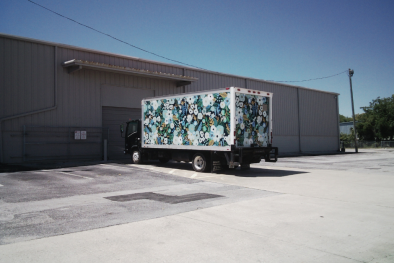
Conflict of Interest at the Highest Levels: Analysis of the Smuggling In...
Адвокат Максим Раков прокомментировал беспрецедентную ситуацию в израильском правоохранительном сообществе на радио РЭКА 1 февраля 2026 г.
On 23 October 2025, the European Union approved a new 19th sanctions package of restrictive measures against the Russian Federation. The move was synchronized with the latest U.S. sanctions, which targeted Russia’s leading oil companies Rosneft and Lukoil, including their subsidiaries and affiliated entities. The tightening of the sanctions regime is aimed at severely restricting Russia’s ability to finance its military campaign and technological development.
Ban on liquefied natural gas imports and transportation:
The EU has imposed a complete ban on the purchase, import, and transfer of Russian liquefied natural gas. For short-term contracts, the new rules will apply from 25 April 2026, and for long-term contracts from 1 January 2027. Exceptions are provided only for certain EU member states lacking alternative gas supply infrastructure.
In addition to trade restrictions, the ban extends to technical, financial, brokerage, and any related assistance in connection with the import and transportation of Russian LNG, including insurance and reinsurance of maritime shipments. These measures are designed to impede the operations of Russian energy operators and their partners in third countries.
Ban on the import and transport of petroleum products and price controls:
Over 100 additional oil tankers servicing Russian exports have been added to the EU’s blacklist, accompanied by tighter oversight of vessels engaged in price cap evasion and sanctions circumvention.
The EU has also introduced new price ceilings for Russian crude oil and petroleum products, prohibiting insurance, transport, or financing services by European entities in respect of oil or products purchased above the allowed price cap.
Moreover, the 19th package eliminates previously granted exemptions for certain energy companies, notably Rosneft and Gazprom Neft.
The EU has banned all tourism-related and ancillary services, including marketing, engineering, and support for tourism projects in Russia. This measure is intended to reduce foreign currency inflows to Russia’s tourism regions, particularly in state-promoted destinations.
The EU has prohibited all cryptocurrency-related services for Russian residents, including the issuance and maintenance of wallets, as well as transactions involving electronic money and payment instruments.
Special attention has been given to the A7A5 stablecoin project, backed by PSB Bank reserves, and associated crypto exchanges. The measures extend to both new and “mirror” platforms those disguising their links to Russia, thereby closing loopholes for sanctions evasion through digital assets and integrating the crypto sector into the overall EU sanctions control framework.
The sanctions expand the list of Russian banks and financial organizations, including subsidiaries in third countries, subject to a full prohibition of transactions. The blacklist now includes Absolut Bank, MTS Bank, and Alfa Bank.
The new measures ban financing, lending, asset and transport insurance, and reinsurance of maritime and aviation assets. Particular focus is placed on the Central Bank of Russia’s financial messaging systems, namely SPFS, the MIR payment system, and the Faster Payments System (SBP).
EU banks are required to suspend financial operations and block accounts and transactions associated with sanctioned entities and individuals. Transactions under contracts concluded before 24 October 2025 that utilize the CBR’s payment systems (SPFS, MIR, SBP) are permitted only until 25 April 2026.
For the first time, EU sanctions have been extended to special economic, industrial, innovative, and preferential port zones of the Russian Federation, including Skolkovo, Innopolis, Alabuga, Free Port of Vladivostok, as well as the Far East and Arctic zones.
The new measures ban the establishment of new joint ventures, financing, or equity participation in companies registered in these zones. Investments and contractual relationships with such entities entered into after the regulation’s entry into force are prohibited, while existing arrangements concluded before 24 October 2025 must be terminated by 25 January 2026. The restrictions also extend to affiliated entities located outside these zones.
The law firm Maxima Legal has been added to the EU sanctions list for facilitating asset-freezing evasion schemes by providing falsified documentation. This marks the first instance of a law firm being sanctioned and imposes additional due diligence obligations on legal and consulting firms.
Such firms must now strengthen checks of clients, beneficiaries, documentation, reputational background, and ongoing compliance monitoring with sanctions lists and internal compliance policies. Even indirect involvement in sanctions circumvention may result in blacklisting.
The 19th package introduces new sanctions against companies from China, the United Arab Emirates, Kyrgyzstan, Kazakhstan, and Turkey that assist Russian entities in circumventing trade and technology restrictions.
The sanctions list includes suppliers involved in the re-export of microelectronics, critical materials, defence-related components, dual-use goods, and IT technologies (e.g., Chinese exporters, Kazakh electronics suppliers, UAE intermediaries, and firms facilitating cryptocurrency settlements or “mirror” fintech services).
It also targets foreign transport companies that help conceal the Russian origin of raw materials, oil, gas, and industrial components in logistics chains.
The blacklist includes Chinese re-export traders, crypto exchanges and trading platforms, and logistics operators in the Middle East, including a Lukoil subsidiary (the parent company Lukoil itself was not directly sanctioned in this round).
The EU’s 19th sanctions package introduces restrictions across new sectors of the Russian economy and establishes entirely new mechanisms for targeting sanctions circumvention. These measures form a multi-layered legal framework designed to enhance the impact on Russia’s economic and technological activity in the international market.